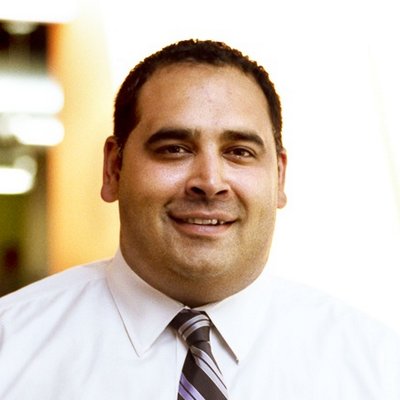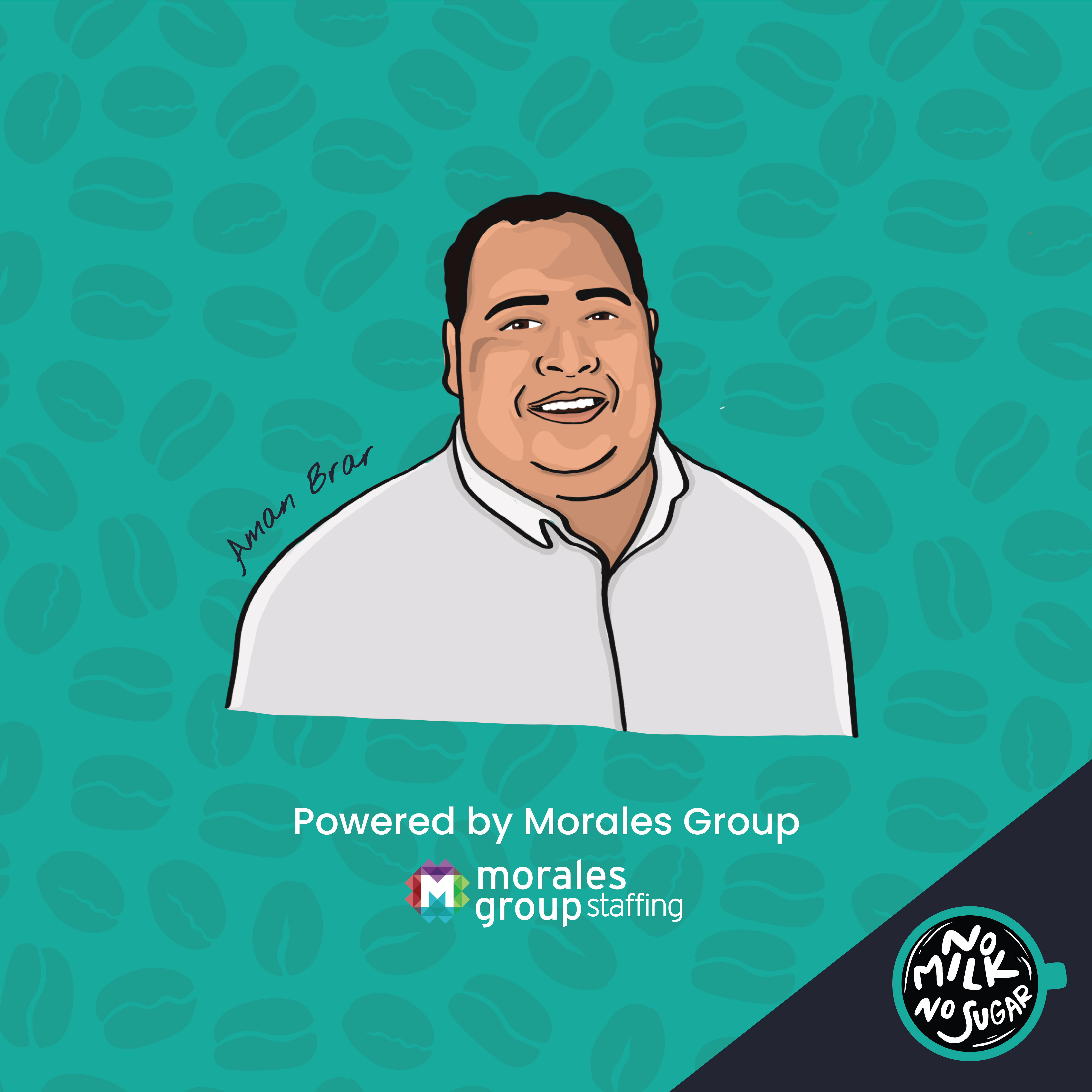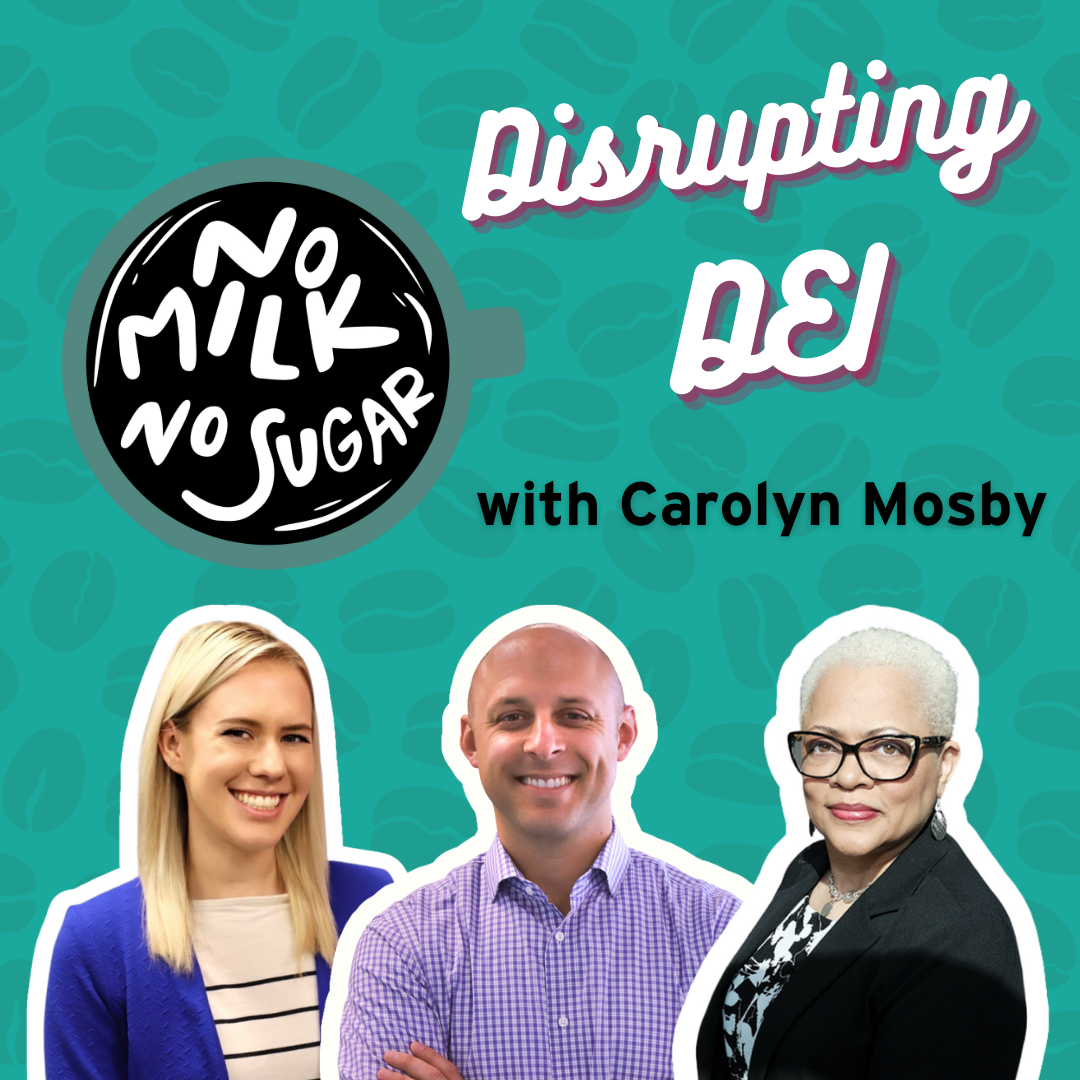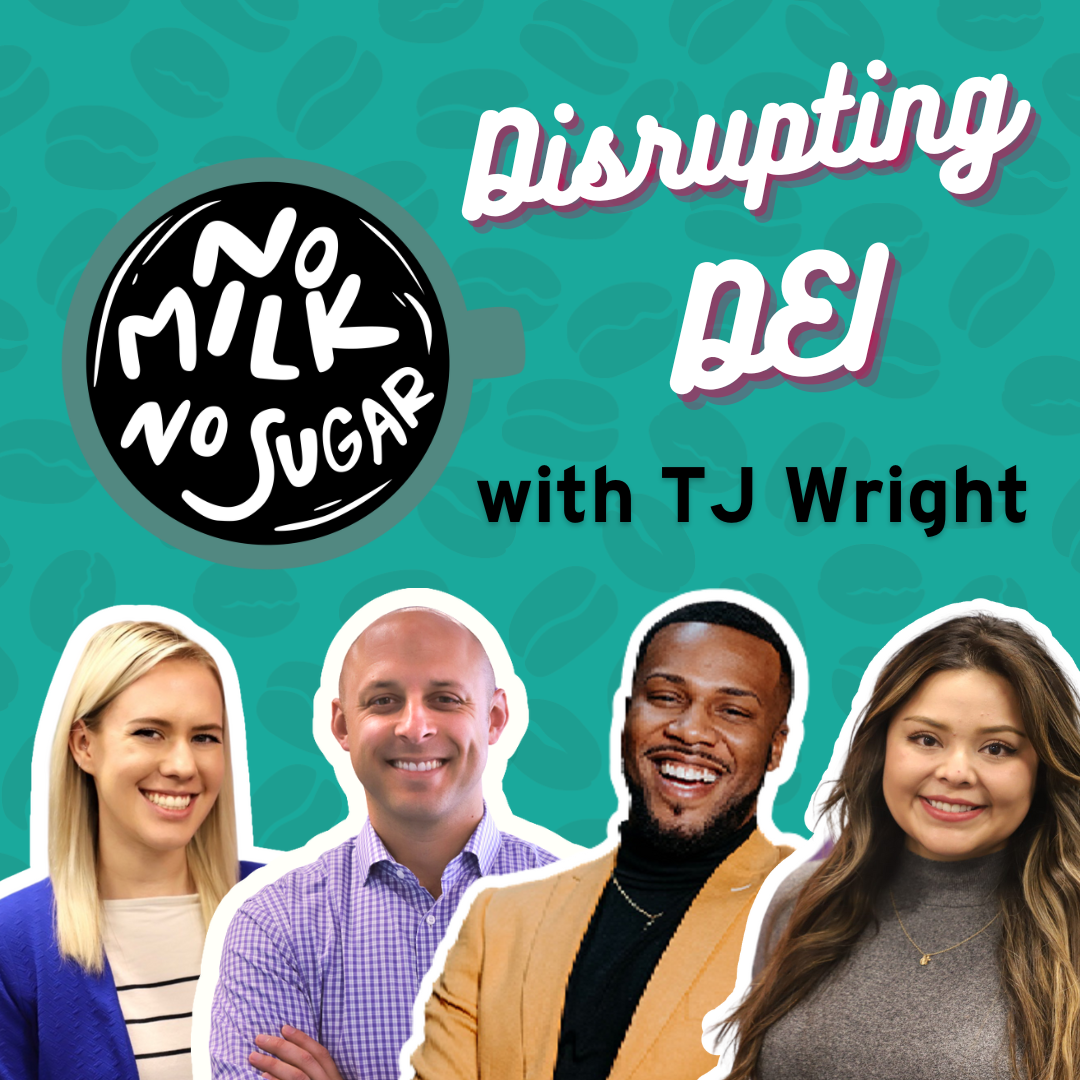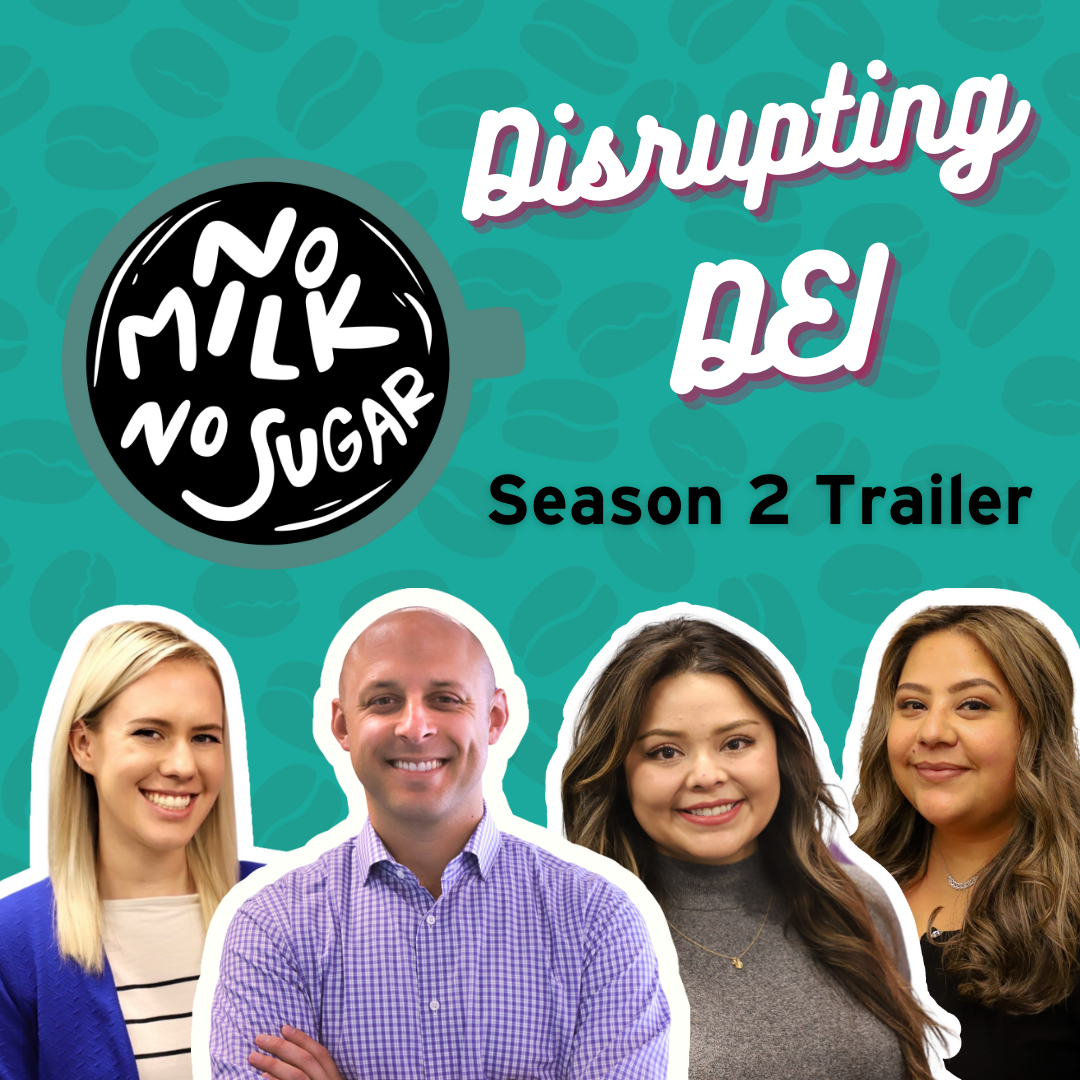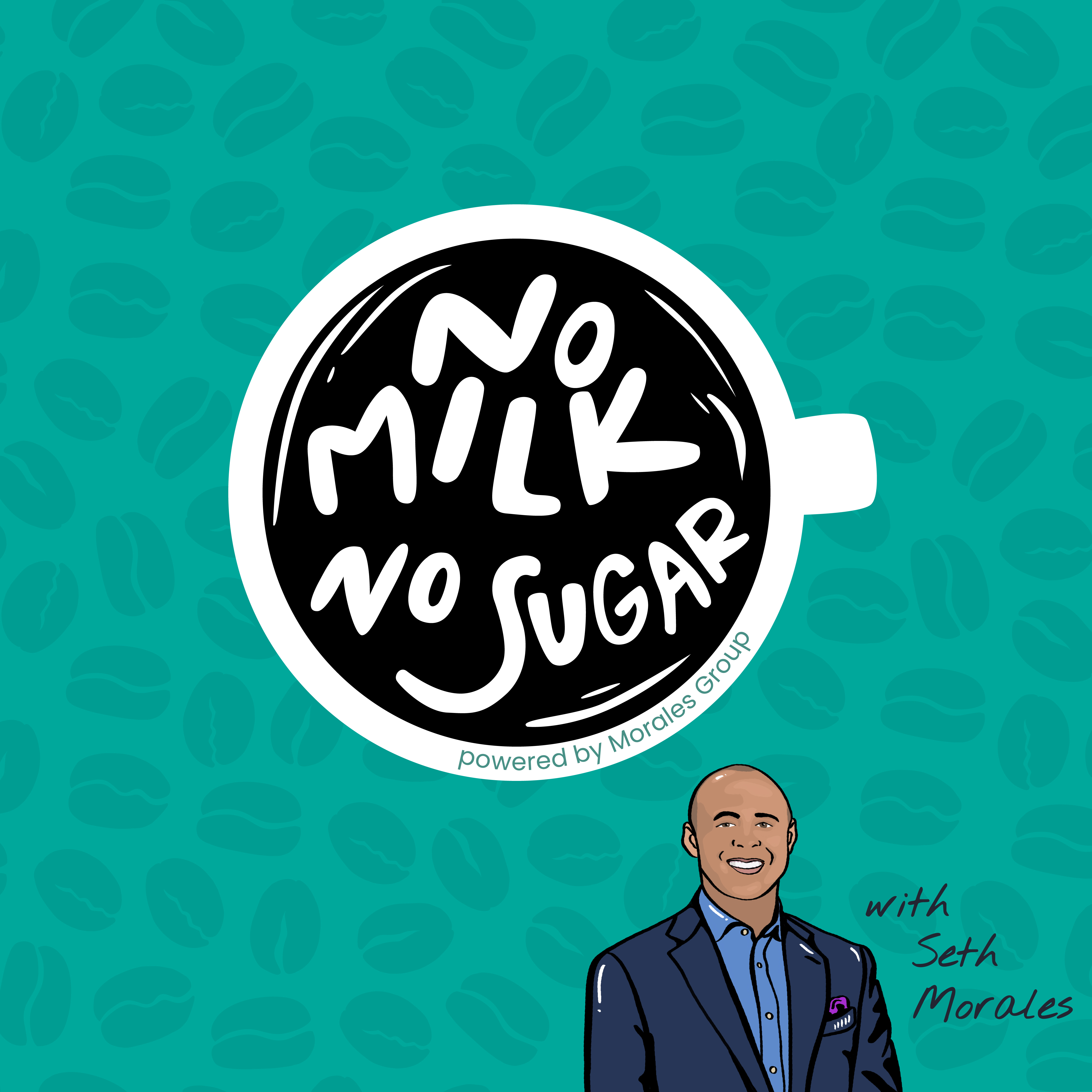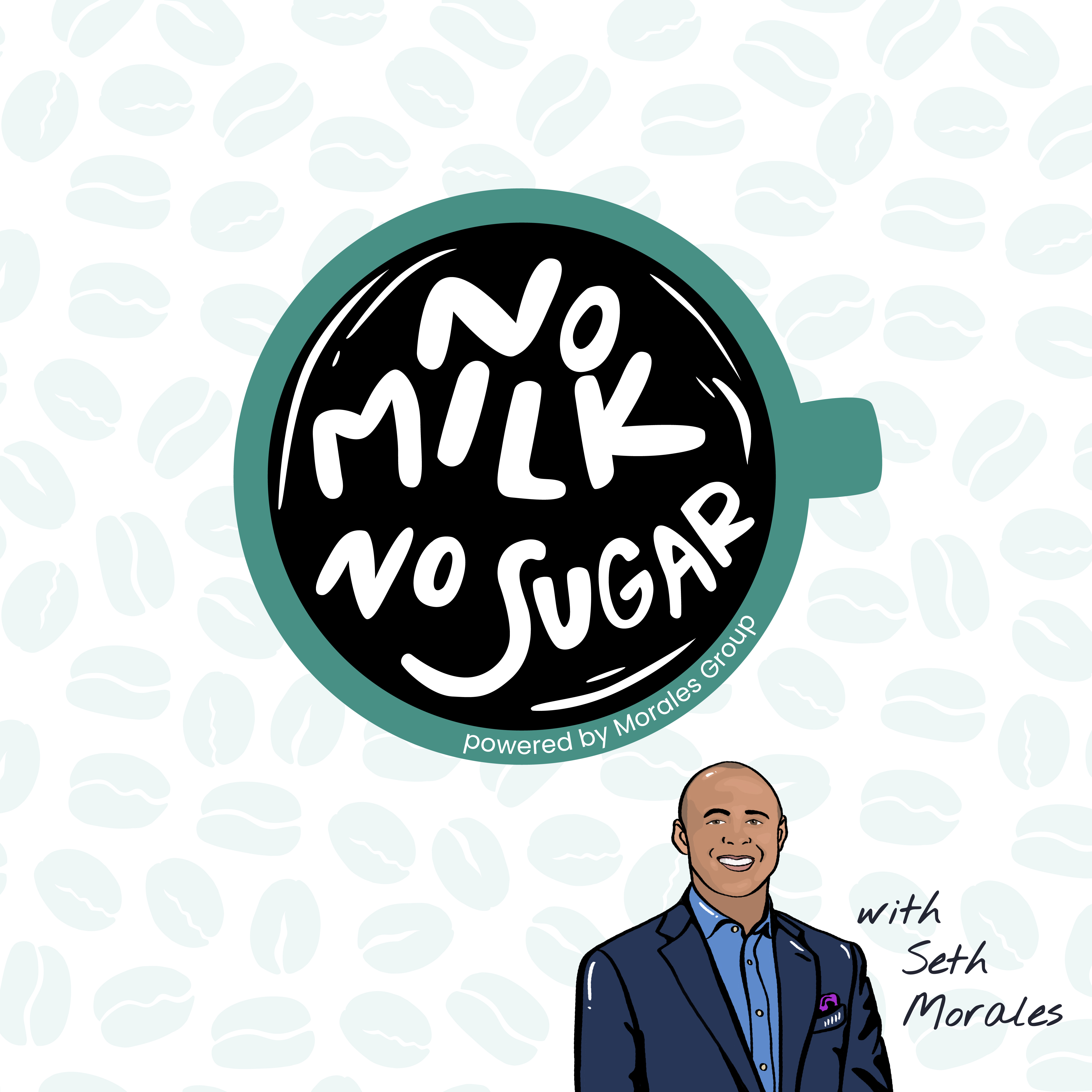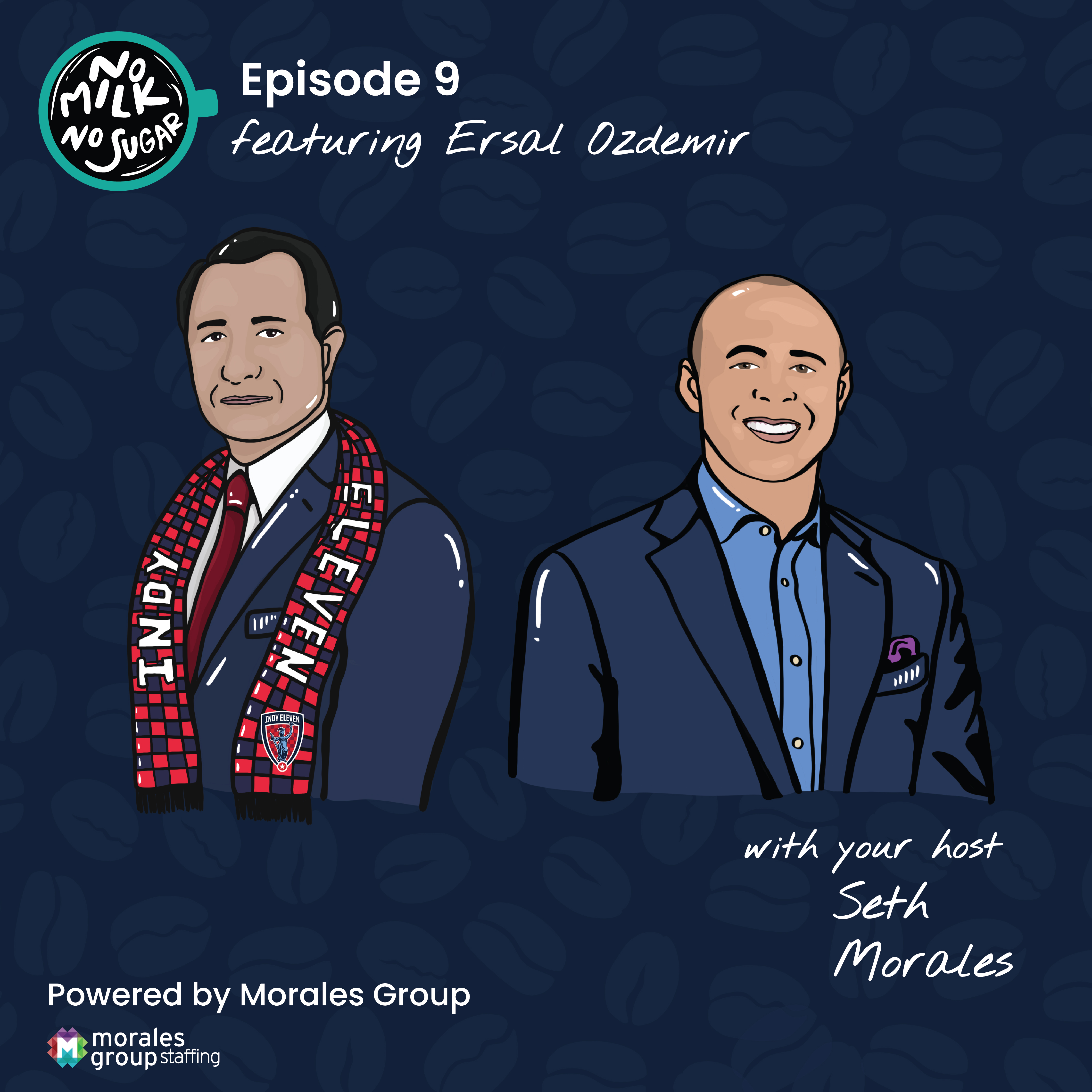The Business of Dreaming & Doing, with Jobvite's Aman Brar
- 0.5
- 1
- 1.25
- 1.5
- 1.75
- 2
Speaker 6: Coffee for Seth, no milk, no sugar?
Seth Morales: Right here, thank you.
Tori: You are listening to No Milk, No Sugar. The podcast about business beneath the sweetener. Powered by Morales Group and hosted by CEO, Seth Morales, we talk to local movers and shakers about what can be the harsh reality of doing business. We cover what no one likes to advertise, but everyone wants to hear. I'm Tori, producer of the show, and today we talk to Aman Brar, self- described raconteur, and former CEO of Jobvite, a comprehensive talent acquisition focused suite, and Canvas, the world's first text based interviewing platform. Aman and Seth dig into the necessity for innovation, and how he uses tech to accomplish his mission to move society forward.
Seth Morales: It's basically like somebody's kind of eavesdropping in on you and I drinking some black coffee, and being real about business and life and everything in between. Man, thanks for making time. It's good to see you, catching up and seeing you in this new state of mind. I'm curious to figure out where you're at right now and what you're doing, but before we get there, just give us a quick flavor. You're a serial entrepreneur, you've been a CEO. Give us a little bit of context of what you've been up to the last decade or so, just with some of the successes that you had. We'll get into some of the not so great moments, but let's talk about maybe the highlights right now.
Aman Brar: Sure, yeah. The highlight reel, I've just been fascinated with the impacts technology can have on the world since I was a kid, and dedicated most of my career to doing something in the broad category of tech. So over the last decade, I helped with a great exit, and build with a company called Apparatus, where we pivoted into the managed cloud space and had a great run there. Sold that company with a great team that I was a part of, to Virtusa, a global technology consultancy out of Westboro, Massachusetts. And then stayed on to integrate that company for about a year and a half, and then founded Canvas with a great group of people again. The world's first tech space interviewing platform. Had a great run there, and 16 months later we were acquired as part of a four company roll- up funded by K1 Private Equity. And then I soon thereafter became the CEO of that company, integrated those four companies, and a few more after that. So after about two years of fun work doing that, I decided to take a little sabbatical, and that's where we are right now.
Seth Morales: That's awesome, man. That was a quick highlight film, I don't know if it gives you enough justice, man, but hats off to you on some of the success, man, there's been some good exits for you, some good press. And I think there's been a few things that I think you've done really well. One thing that really stuck out to me was when you left Apparatus, and you got a lot of your team back together and rebuilt a new platform with Canvas, I was really, I honed in on you were the jockey, you had a cool horse, or the business model, but you brought a lot of the team back together. And I think that was key to having some success with getting started quickly, and getting Canvas launched. So hats off to you, man. Tell me a little bit more about, what was the secret sauce to having Canvas launch and have success? Anything else that you'd add there?
Aman Brar: Yeah, sure. I always take succinct- ity for real, so when you said the quick highlights, I wanted to do that justice. But I love telling K Canvas, love telling Apparatus stories. Those are fun highlight film moments. But I think with Canvas, it doesn't feel weird now to say that you might engage with a company, and actually be screened or interviewed via text messaging. But 2017, that was still a really foreign concept. And so, part of the success of Canvas quite frankly, was I think just really incredible timing. We started building it while it was still a really weird, uncomfortable concept. And we really leaned into that, why we were so excited about it is, is we thought this is either going to be great or it's going to just suck. It's going to completely not resonate. We really felt like it was going to be one of those two things. And that weirdness to the product back then, and the whole concept was actually what really excited us, like hey, this is weird, and the weirdness in this means it could be pretty interesting. So as you mentioned, bringing the team together allowed us, given our experience, to move very quickly. And so when we hit the market, June 13th of 2017, the weirdness of the idea, tech space interviewing, those words had never been combined before. And so, we ended up breaking through the technology press and just into the lifestyle press, and employment. And it just kind of became a story across a lot our media, almost like," Is this really a thing? Is this going to happen?" It was like an interest story. And that then led to a lot of inbound, where we got lucky because it was almost like self- identified rebels were raising their hand to learn more about what we were doing. And so, that really fueled our success. And then the market, the whole notion of leveraging chat- based technologies, that market just started moving very quickly. So, we happened to be building the surfboard right around the time that that wave was going to start coming in. And so, certainly a great team, great idea, but like anything, a good dose of luck and timing on how the market is evolving. I've been too early and been too late before as well.
Seth Morales: That's a good thought, man, on the timing part. You mentioned sabbatical, when I saw you, you were maybe just gently getting into that. You talked about Jobvite and private equity, and running a host of companies. How's life in the sabbatical world? What are you up to? Give us a flavor, has it been good, bad? Give me something.
Aman Brar: Yeah, it's been a great learning experience. I think I shared with you, Seth, one of the things I was real focused on is wanting to make sure I was doing my next set of things, based on impact, versus my historical performance drivers of anxiety, and needing to prove to myself that I can build something. And so, really trying to reframe my why of how I want to spend my energy to build something. So I've done some good work there, a lot of walks, a lot of meditations and some journaling, the basic cadre of things you do when you're going to be introspective. And it was a lot of just unplanned time. I didn't really attack the week with the schedule, I just goofed around with my family and tried to be helpful around the house. And I probably learned something about expectations. I thought I'd be playing a lot more FIFA soccer on the Xbox with my son in the afternoon, and realizing he's a lot more interested in his other 12 year old friends than me, so I had a good dose of humble pie on what that was going to be like. But it was a really great experience, just kind of putz around for 30 or 40 days, without enduring a lot of stress and anxiety and pressure. So as my son went back to school, August 10th was kind of my timeline to start rethinking and reengaging with professional interests, and so I've just now made that transition. And so, it's funny because I can't really point to that 40 days and say I accomplished really anything, but that was also kind of the point, just to relax and unwind.
Seth Morales: I'm glad you're intentional about that, although you don't know what's come from it, there's probably been some goodness with being just around the house and hanging out, especially on the FIFA side, man. So, are you pretty legit? Are you good at FIFA?
Aman Brar: I'm decent. I think I need more time to be elite level, but then I try to play Rocket League with my son, and so he's so far beyond me I've got no chance. So, I've just decided I'm a spectator when it comes to Rocket League, but FIFA I can inaudible. I think FIFA is just slow twitch enough, where I can hang, but your Rocket Leagues, it's another level of the controller skills here that these kids have now.
Seth Morales: Yeah man, that's that's next level. I don't even know what you're talking about.
Aman Brar: You'll learn, you'll learn.
Seth Morales: Anyways, so what's next man? So you've been kind of in hangout mode with the family, you haven't dove back in like you had in the past when you were out of one thing and you're into the next. So, what's cooking or what's interesting to you right now?
Aman Brar: Yeah. So, kind of organically opportunities to advise and consult in my area of interest, technology companies, et cetera. Those emerged pretty quickly, and that's actually been really fun. I've really enjoyed the opportunity to work kind of behind the scenes with other CEOs and other key leaders at companies, whether it's go to market strategies, or just executive coaching or preparing for acquisitions. So, that's been a fun portfolio of work that I've been doing here this month. And then probably at least a day or two a week where I'm running through my list of bad ideas to figure out which ones of those I might want to take from bad to decent, to start to explore a little further. So I've been doing a lot of generating of ideas, and one of the key processes for me there is to be discussing those openly with folks to get feedback, and start to help the world shape the clay that I'm sitting there obsessed about in the moment. So I, like you and the whole world, no secret, I've got a lot of interest in how is the future of work going to evolve, given this climate and this radical shift that we've gone through? Whether it's remote work, or the great misalignment of what people are looking for in their careers, and geographies, et cetera. So in my opinion, all this chaos is going to lead to opportunity. I think it moves us to be thinking and experimenting around what might emerge. And so, the key process for me is getting to a place where you can accept the failure of an idea before you even start it. I just like to walk through that funeral before I even get going. I remember when I was thinking about Canvas, I think I told you this, Seth, I was visualizing it not working, visualizing telling my employees it didn't work, my investors it didn't work, just so I could be prepared and accept that hey, you know what? I walked through all that, and the world didn't end, so let's go do this thing now. So, it's almost like anti- positive psychology. I go to a deep, dark place, I get real comfortable with it, and then I can go be a really positive person about what I'm going to go build.
Seth Morales: That's unique, man. That's definitely different, it's outside the box, just because a lot of people want to find a way to make it work. You mentioned when Canvas, you guys flew out to San Fran and you were vetting out ideas with other HR execs were in the space. That was cool, you were kind of doing the funeral process there to see if it was going to stick or not. That's smart, man. I think doing that, and getting it early, fail early, being open to the failure, and then figuring out whether it sticks or not. You continue to do that, so you're doing a little bit of that right now.
Aman Brar: Yeah. And I think to push a business forward, you do need to be the light, and you got to champion it and move it forward. But it's almost like to me, a way to get my head wrapped around jumping off the cliff. There's that whole thought process, it's almost like if you just think about having nothing, and you're still alive, and you're okay, and you got your family, you can go take that risk. So, it's really my process of preparing, that there is risk in entrepreneurship, and so let me just pre- process it now and then be okay with it, and then go do the real positive things that need to happen. I think my trip to San Francisco regarding the kind of proto- Canvas, when it was still kind of asynchronous text- based interviewing, was really about A, to get out of the bubble that I operate in. And you know, it's like I wanted to get maybe a little more objectivity. I knew that I was coming off the Apparatus exit, and so there would be some excitement around what we were going to do next. And so, I wanted to almost break through, to your point, the jockey part, and actually really get into the idea with some people that maybe had less connectivity to me, and more of an objective lens. And then, to take some ideas and shape what Canvas would become. But I just felt like it was really critical to get out of my bubble, and get broader views around what I was going to go build.
Seth Morales: So, you got a couple ideas brewing, you're also consulting, that's fun. You're kind of in this, you came up for air after the sabbatical. You went through this run where you sold different companies over the years. Obviously there was exit, there was a lot of money raised and then there was a lot of money reaped, so congrats to you on that. What do you see in this space of just work, and the way it's shifting, the future of work, the gig economy, text, you saw it with Chacha, Apparatus, not so much maybe Apparatus, but definitely with Canvas. Talk to me about the world of recruiting, and just recruitment marketing. You got a good pulse on that, you worked for Jobvite, which is obviously an applicant tracking system that really understood that space and did a whole host of other things. Give me a flavor for just what you see around the corner with all the disruption.
Aman Brar: Interestingly, I could even tie it back to Apparatus. Cloud computing was the wave that set off all of our ability to work remotely. And so, even with Apparatus the insight there was we were going to stop being an onsite consulting firm, and turn into more of a people API, that you buy into remotely to manage your cloud environment. And so, there was a lot of interesting future of work shift happening there. Then the Canvas insights came from scaling a company, about how should we be interacting with engineers and others? They're not on the phone every day, so how might we think about engaging and screening them? So, that thread's been there for a while. I think what I think a lot about now, is it's a incredibly tight labor market. And I think it's, one of the things I've been thinking about, and I don't have a business here right now, but I think this whole insight into the mismatch, as we're kind of calling it, between what the candidate wants to do versus what's available, kind of the shift out of the service sector, as hospitals are seeing people tired on the front lines and looking to do something else. I think companies are going to have, for example, better tools in assessing non- traditional candidates. So, some candidate that's coming from, if you're in the service industry, how could we suss out who is in the service industry, or who is in light industrial that might be great at SaaS sales? So, I think there's just a lot to figure out here, as people are shifting from one sector to the other. And I think managers are going to have to be thinking a lot more creatively and open minded. I was talking to a company just yesterday, where they're struggling finding sales people. And like a lot of companies, you may just have to look to your verticals for who your future sales people are. So, if you're selling to hospitals, there might be a nurse that's ready for a career change, not the person that's leaving Salesforce that you need to go after. And so, I think there's a lot to do in this space around that. And then I think on the whole remote versus physical part, I think there's, what's the tooling to make that cohesive? We've sat in these hybrid Zoom meetings, where there's like 10 people in a room, there's four people not there, it's not a great experience, right? So, I think there's just a lot to be figured out around how we're supposed to be working and engaging in the future.
Seth Morales: Are you more interested in the mismatch, solving that, or the physical, how do you get this environment where it's virtual and in- person, right? What seems more sticky to you?
Aman Brar: Sure. I think the mismatch is a temporal, and that's something to go solve right now. And I think the, how we operate in hybrid physical virtual models, is going to be a lot of experimentation and failure, and it's going to take a while to get it right. So I think one's kind of intellectually interesting in a future state type of perspective, where you could end up down a path with AR and VR, and virtual conference rooms, and some of these really novel technologies that are going to take a while for the universe to adopt. Whereas if you could figure out right now from a recruitment marketing perspective, what nurse or what light industrial employee is going to make a great software salesperson, right now there is money to be made to go solve that problem. So, I think that that would be something, you're in early innings, any entrepreneur that wants to go think about that deeply, I'm sure there's opportunity.
Seth Morales: Well, keep stewing on some of those ideas, man. Always curious, love the way your mind works. Talk to me, man, just less highlight film, more about if we're looking at film, we're at Wabash, we're watching you play back in the day. Where did you suck? Give me some play calls that you made that just as a leader, you wish you could go back and change. Or what did you learn early on building some of these companies, where it wasn't so pleasant, or you had some mishaps? Give me a little bit of that straight up black coffee.
Aman Brar: I could go back to starting at 21 and just being lucky to have great mentors, and learning that... I'll give you an example, I'm probably oversimplifying it, but hey, I can go get a lot done by being a bull in a china shop, but I'm not going to carry the team along with me. And so, I got a real dose of humble pie on how to operate. I'm so thankful. I was six months into my career, doing the head down, work hard, just plow through everything that's going to get in my way. And realizing that hey, there's got to be more to the toolkit than that one play. So, I can't just keep running, dive left and dive right, take it down the field, to your point. So, that was an early lesson, then I think as I started getting into leadership, Seth, I think I misunderstood, this is why a million books on this are written per year. I just misunderstood how hard it is to align and communicate with something that's bigger than a small group of people. It's very, very complicated. I think early, in my early tenure as a leader, I was walking around," Why isn't anybody understanding? Didn't I already say that? I don't get it." And it was kind of this, I really didn't understand why there was such a disconnect between what I maybe said at one all hands meeting two months ago, and why everybody's confused about the strategy today. Versus realizing that that context has to be set every hour, every day, to keep the ship aligned. And I would say I resisted that for a while, and probably didn't help the company move forward fast enough. I think about that a lot in my Apparatus days, I think we probably could have moved even faster if I had understood some of those more mature elements of leadership. So, that's certainly an example. If I could go back in time, I'd have a whole different game plan.
Seth Morales: You learned a lot. Those are two great examples, I think bull in china shop and then context and repeating yourself. Would you ever consider writing a book? You've had success, but you're also really humble and transparent about where you've... You're real succinct to the point about where you've dropped the ball. Had it ever crossed your mind about, like The Hard Thing About Hard Things, a book like that? Where you're writing something, you've got a proven track record, did that ever cross your mind at all.
Aman Brar: To your point, anytime somebody wants to know what it's like in the startup journey, I think it's a great example book. I also love Guy Ross's How I Built This. Just hearing, even those less software oriented, just more physical, tangible entrepreneurship stories are so fascinating. Book- wise, I guess maybe it's my own humility here, but I'd like to go just accomplish even more, and have more to write about one day. And so, certainly I love teaching, and I love coaching, and I love trying to help folks as they're navigating their own journey. And certainly writing, I love writing, and so I think something like that, I could see it happening, but maybe I'd like to earn the opportunity to have an even bigger platform before I share, would be more impact over time.
Seth Morales: Humility coming out in you, man, it oozes. It's good, man. So remind me again, are you a Ben Davis grad?
Aman Brar: I am. Yeah, I went to Ben Davis High School.
Seth Morales: See, local product, Indianapolis, went to Wabash. You studied what at Wabash?
Aman Brar: Economics and religion.
Seth Morales: Okay. Wow, okay. Economics, religion, sounds like a Wabash undergrad type of student. And then you've had this track record, but I was just thinking about, you said bull in china shop, but I was just thinking, what's the difference between you at that early age and where you're at today? Sabbatical probably wasn't in your Rolodex back then, you probably weren't thinking that way. Give me something else outside of bull in china shop that's changed, between the hard charging Wabash grad with a sharp head on his shoulder, and where you're at today with the family and having some exits. Give me a little bit of flavor for what you've learned or what's different.
Aman Brar: You mentioned inaudible, I was kind of a late bloomer in many aspects of my life, including finding my own footing and confidence in life. So, I was not a very confident young person. I was not sure- footed, had a lot of anxiety, just over worried all the time. And I think in some ways when I went to college, I started blossoming and finding my groove in life, whether it was on the football field or in the classroom. And then, so I'd learned the skill of confidence, and I think that that's actually where that bull in china shop mentality came from in my early career. I also, just growing up without much money, was just so focused on earning my wage and earning my keep, and I didn't want anything to get in my way to take care of my family and those types of things. As I've grown since then, I think there's so many areas where I've just been so lucky to be around people who give it to me straight. Here's one example, Seth, when I'm debating ideas I can get real direct, and I get real focused on the idea. And there will be moments for sure where irritation gets expressed in my voice, and I sound irritated. And that's something that's off putting, and something I really, really work on. To A, make two things clear, one is if I do express irritation, it has nothing to do the person. I'm just so excited about the idea that I get real into the idea. And so, but I've also learned that not everybody is going to... It's about me evolving, not so much trying to go explain that to everybody. What can I work on to just not let that irritation drive through my communication styles as I'm digging in on something? So, that's created real challenges for me both in my household, and certainly in my professional life where I'm a pretty happy go lucky guy. And so, then when a bit of irritation comes out, it can feel like a real cold shower, because it's not the Aman people are used to. It's not something that I try to... I don't want people to feel like they have to vacillate around my tone of my voice, if you will.
Seth Morales: Obviously you've learned a lot along the way. I'm curious, I've never had a chance to work alongside you. We've worked together as partners, Morales took on Canvas and it was a game changing recruiting software for us, we loved it. My thought sitting with you as a CEO, you're very visionary, but you also, you seem to be really good at maybe getting the right players on the field, around you as quarterback, to have success. So you know it's a team thing, it's not just me, I'm the only most important kind of teammate on the field. As a CEO, man, what do you suck at? What's something that you get a 360 review, or you're talking to your board when you were with Jobvite, and they're like," Hey, this is something you could work on." Give me a little bit of a chink in the armor. What does that look like?
Aman Brar: I think I want people to read my mind sometimes, and so I'm not being as clear and succinct from an accountability perspective. It's like," Well, of course they know what they're supposed to be doing," do you know what I mean? Versus that being more concrete with," Hey, the plane needs to take off at this time, it needs to land at this time. Here's the altitude it needs to achieve." And that's something that I'm always working on. Now my hack for that, is again, back to... Look, I was a left tackle, so I'm used to folks like you, Seth, the receivers and the quarterbacks getting all the glory. So I think some of my ability to really want to promote others, is just because that's how it was in the football field for me. I knew my job was important, but when I think about a business, that team has been so important to me. Being with great operators, and having incredible operating partners, folks like Jared Adams and others, Peter Claire at Jobvite that I've worked with. Even Joe Kuntz who's our chief revenue officer at Jobvite, he has such an operational mindset. And so, it's important for me when I'm building the team to think about what am I really missing? Because I do a pretty good job at setting a vision. I think I have had to learn to be more direct in holding people accountable. And I have a desire for harmony, so I have to push through that and really recognize that it's helpful for that person to be held accountable to what they said they were going to deliver to the organization. So, just being clear in my communication and not just always assuming that people know what they need to be doing today, that's a real thing that I'm always, always working on. And sometimes you get bad habits, when you're working with a team where you read each other's minds, you can create a little bit of a weakness there when you form a new team, because you're just so used to riffing on each other, with each other. It's like playing with a new band, where it's like," Oh no, we really need to look at the sheet music now," like dude, you know what I mean? We need to actually do this differently. I've had to make those adjustments for sure.
Seth Morales: Would you ever be an employee, or are you always entrepreneur, consultant? Do you ever get into the," Hey, I'm going to be a teammate"? Any desires there, or," Hey, that's just not my cup of tea"?
Aman Brar: If I think past my ego, for sure I think I could see myself there. I think when I visualize that kind of stuff, stuff that's probably around impact, like I've had folks ask me,"Would you ever work in government?" And I'm like," You know, look, if there's a job that needs to be done, and I can make an impact, and be the assistant deputy of make the world better? Yeah, I'll go do that." I don't need to be necessarily the top person. So, I'm pretty open mind when it comes to those things. I think certainly don't don't know, don't know. And some of it's just keeping a beginner's mind, and an open mind on what the future might hold. I certainly enjoy the craft of leading, but you look at a company like Apple, you've got probably 40 people there that could be the CEO of a large company. So, I think it's all about what's the team, and what's the objective, and what's the mission? When I think about startups, it's hard for me to visualize not being the CEO, but even that could be something new, could be something interesting. Getting to my sabbatical, I had to work through the ego, letting go of the perks that come along with being the CEO of a decently sized company, and working through getting into that new skin. Of just going hey, some of the soft power that you get from having that role's going to go away, and let's embrace that.
Seth Morales: Good thoughts there. What about the tech scene in Indy, man? Give me a flavor for what you think. Some people say," It's just another city, got a little momentum but it's not like the coast, or Chicago, or Austin." And some say," Hey, it's got good momentum. There's a lot of real good things going on." What's your quick vibe on the Indianapolis tech scene, and what's ahead?
Aman Brar: Never been a better time to be in tech in the world. So, being in software is a great place to be. I think Indy is a great place to be for tech, but I think the thing we have to recognize, and we talk about this, Seth, is all the ships are rising. So we have to rise, we have to find a way to rise faster than our competitive cities. I do think the one thing that's helping Indianapolis right now is people have really rethought where they want to live, and how life should feel and look, and Indy has some things to offer from a comfort perspective, and amenities that make it a good place to think about developing a tech career or starting a company. Now, we have a lot of work to do, and I think we should be really proud of ourselves and the progress that we've made, but I think we got to keep it real, and know that we're not doing enough, quite frankly. The state and the city have to keep pushing forward, because it's incredibly competitive out there. Lots of cities are doing lots of amazing things, and I think not only we not let off investing, we have to invest more to get this thing really competitive over time with our competitive cities.
Seth Morales: Man, I think this bold vision is what I heard, the other day I was on a call with Scott Dorsey, and he was just talking about how the city of Indianapolis needs more of a bigger, bold, riskier vision for what's ahead. Because if we don't, like you said, the tides are rising across the country with certain demographics and cities, and we got to take advantage of a different play call. It's kind of like the play call they made in the sixties and seventies, to really reshape the sports in Indianapolis, that really made us a magnet for being a host city of many sporting events, and it's really defined how we look today. So, really fascinating. I know you got a really good pulse, I know you're on the board. Remind me again, you're on the board of something on the tech side?
Aman Brar: Really happy to support Michael Langellier and his efforts at TechPoint. And so, tend to do a fair amount of work in the employment sector, whether it's EmployIndy, Orr fellowship. And then the one that's you very near and dear to my heart is the board chair for Teach for America here in Indianapolis, also on the IU Foundation board. So, board work has been fun, it's fun to contribute in that way. But yeah, I definitely my fair share of board work and really enjoy working with those people that, it's like being a capitalist, it's really fun to be around people that are every day, every moment of their day, trying to figure out to move society forward in some fashion.
Seth Morales: I'm excited for you, man. I think you've done a lot of great work, obviously you've had successes with your businesses that you've started up and sold. And you're doing a lot for the city with the board work, but you're still got some gas in the tank, man. You said something to me the other day that was really interesting. You said there was all this, and I'm going to get this wrong, but it was kind of this, everyone was in SaaS, but in the SaaS space there wasn't a whole lot in recruitment marketing or talent. And you saw software as a service, and what they were doing with exact target and email, but there was this whole other niche with recruitment marketing, or marketing in the talent space that just wasn't being tapped into. And now it's obviously caught up, but you saw that a long time ago, you took advantage of it. Are you going to stay in that space, or are you going to shift out and go into somewhere else? Because I need to know, because I got to stay close to you, man. What does that look like?
Aman Brar: There's a part of me, it's a strength a weakness that I enjoy novelties. There's no doubt, part of me's really interested in exploring new spaces in their entirety. And it happened with the whole recruiting sector, I was not in that space outside of trying to run a business, and then saw an opportunity and dove in. And so, there's a part of me that would maybe love to find something net new. There's other part of me that goes hey, how can I take these experiences that I have and build upon something in that space to move it forward? So I really don't know, but the story you were recounting, Seth, which is when I was thinking about what problems do I want to go work on solving, I just felt like in Indy for example, we had so much great talent focused on the kind of martech sector and sales technologies, which are awesome. And if anything, those markets continue to grow even though they're competitive. And I just thought, well hey, maybe I should contribute to a new space that might be being overlooked, that doesn't have all the brightest minds and capital already flowing to it. Now, the reality is that's changed. HR tech's a very hot market with some of the best thinkers in the world. And there were certainly people before me, many, many companies and people that were trying to move that space forward. And I think the world's onto it now, so it's just as hot as anything, whether it's fintech or martech, there's so much investment. And I mentioned this to you once, if you ever want to go out to a conference, you're just blown away by how much innovation's happening in the recruiting and HR.
Seth Morales: Yeah. I totally chopped that up, martech, fintech, HR tech, there you go. Yeah, shows you how much I know about your space, but it matters. It's been fun to see you continue to build and grow, man, and I really appreciate you giving us the time today. Anything you want to just, parting, any thoughts? You're always a good guy right off the cuff, anything you want to leave our listeners with?
Aman Brar: Two things, hopefully when I come back next I'll be more concrete about what the heck I'm going to be up to. I'd love to have that figured out for myself. But I guess what I'll leave the listeners with, and I don't want to sound cheesy, but I think it's so important, there's just so many people, it's a tough time for so many right now. And no matter how much money you have, and no matter how well off you are, or how stable your life is, there's someone's day that you can make better. And I just think we've just got to keep that front and center. Because it can be hard to figure out how to change the world, but it's really easy to call somebody you haven't talked to in six months, and just tell them that you love them.
Seth Morales: Thanks for sharing, and look forward to catching up and hearing about what's next. I've been a big fan of his, he saw us as a customer, he also saw us as somebody who was a little bit more progressive thinking and could beta test ideas. Yeah, it's been fun I think, trying new ideas to reinvent how we recruit. Because I think we want to find ways to think outside the box.
Tori: Right. One of the main things that stuck out to me about your guys' conversation today, was that it's really innovation that is his main drive, and his why and his purpose, and tech is just how he accomplishes that. I think it really shone through that he really does want to drive society forward, and his avenue to doing that is just his talent in tech.
Seth Morales: He's really good, I think, at seeing ideas ahead of... Being a first mover and vetting out those ideas. The other thing that I took away from Aman, just early on in his life, didn't have a lot of confidence, and the humility that kind of comes through. Because he's had a lot of success, they've sold their businesses for multi- millions of dollars, so he's had some really good fruit from that, but it's in a good dose of humility too. So, you don't always see that.
Tori: Yeah. I thought it was super interesting too, just him talking about how he was a late bloomer. I think that's something that is so positive to talk about on this podcast, that you have so much time to see these ideas through. It's not something where before you're 30, you have to sell several businesses. It's like you have time, you have your whole life for ideas.
Seth Morales: I figured you, you might gravitate to that late bloomer comment, I know you're pretty good at picking out the goodness in what people are sharing. So, my money is on Aman Brar and what's ahead. I would be really interested to see what he does, anything he touches is usually successful. And he does it in a way that's humble, and he creates some cool teams around him. I think the thing that I'm most impressed with him, is just how innovative he is. He likes to jam out on getting in the clouds, and really trying to solve ideas and problems. I don't think like that, he's like," That would be a really interesting problem to solve," and then from there it distills down into a business, and then he vets it out and formulates, investors, and he knows how to make it happen. So, that's just a really unique skillset, not everyone has that. He can be in the clouds, but he can also be on the dirt, on the ground floor hustling.
Tori: That's a special cocktail of being able to have that kind of high level, big picture thinking, but also being able to execute it. I feel like it's rare that you have both of those in one person, and it speaks to why he's been so successful. Thanks for tuning into another episode of No Milk, No Sugar, the podcast about business beneath the sweetener. We hope you learned something, and we'd love to hear from you. Tag us with# nomilknosugar, or email us at nomilknosugarpod @ gmail. com. Or connect with Seth on LinkedIn. Subscribe wherever you get your podcasts, and we'll see you next time.
DESCRIPTION
We talk to Aman Brar, innovator of the highest caliber. Brar is the former CEO of Jobvite, a comprehensive talent acquisition-focused suite, and Canvas, the world's first text-based interviewing platform. Aman and Seth dig into the necessity for innovation, his ethos of using tech to move society forward, and how to balance bringing your dreams into reality.
Today's Host
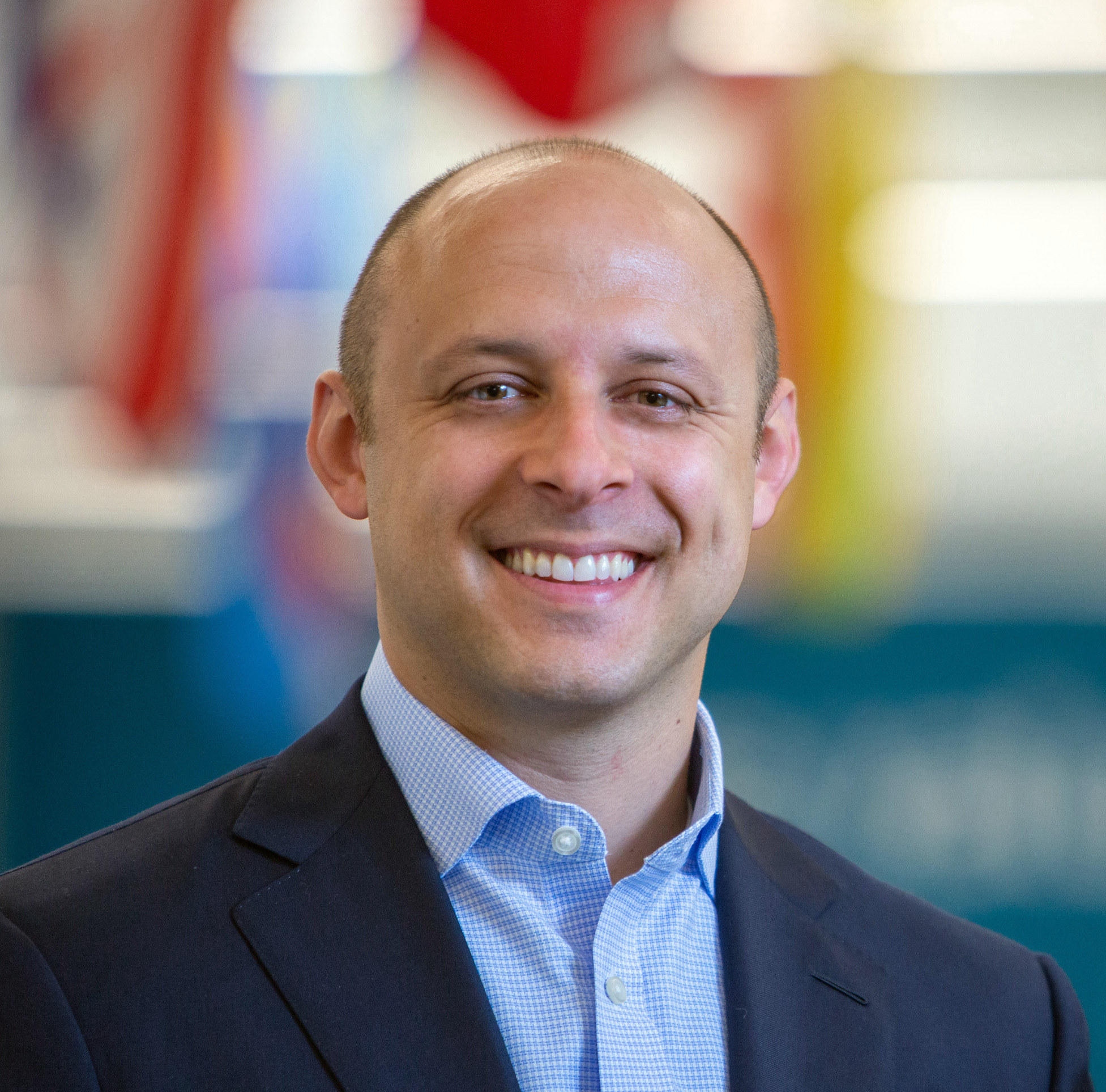
Seth Morales
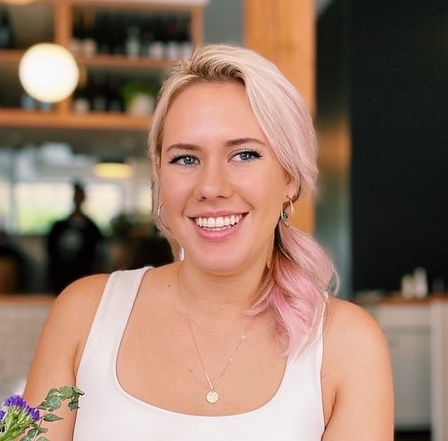
Tori Updike
Today's Guests
